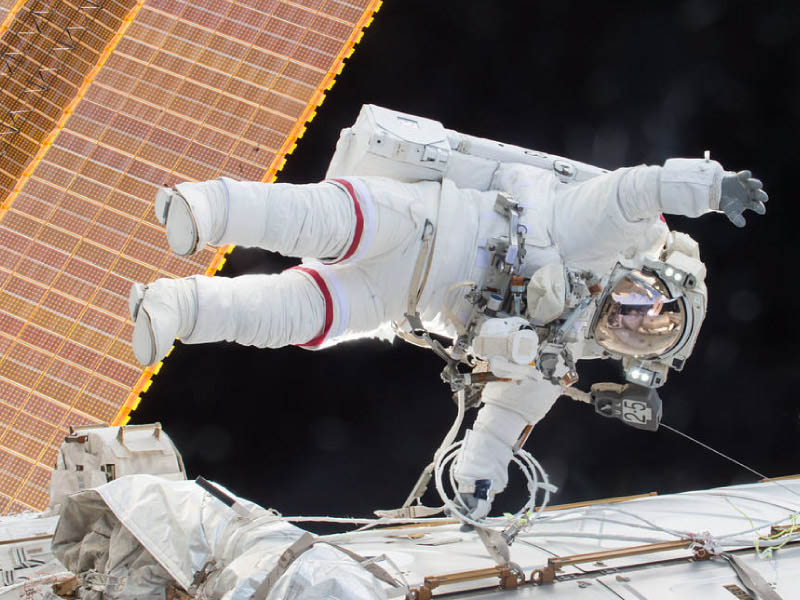Low-intensity exercise isn't enough to keep the heart from shrinking in space
By American Heart Association News

With the prospect of building a lunar outpost, visiting Mars or commercializing spaceflight, the question of how to keep the heart healthy during prolonged periods of weightlessness has become critical. One possibility – sustained periods of low-intensity exercise – won't be enough, a new study finds.
"We were surprised that even extremely long periods of low-intensity exercise did not keep the heart muscle from shrinking," senior study author Dr. Benjamin Levine said in a news release. Levine is a professor of internal medicine at UT Southwestern Medical Center and director of Texas Health Presbyterian's Institute for Exercise and Environmental Medicine in Dallas.
The research was published Monday in the American Heart Association journal Circulation.
Each time a person sits or stands, gravity moves blood into the legs. Countering Earth's gravity helps the heart maintain its size and function. Removing gravitational effects causes the heart to shrink.
To better understand the effects of long-term weightlessness and exercise on the structure of the heart, researchers analyzed data from retired astronaut Scott Kelly's yearlong stint aboard the International Space Station in 2015-2016 and from elite endurance swimmer Benoît Lecomte's 2018 swim across the Pacific Ocean. Water immersion, especially in the prone position used by long-distance endurance swimmers, is considered an excellent model for weightlessness because water offsets the effects of gravity.
During 340 days in space, Kelly exercised six days each week for one to two hours, using a stationary bike, a treadmill and resistance activities. Lecomte swam 1,753 miles over 159 days, averaging nearly six hours per day. Doctors measured the health and effectiveness of Kelly's and Lecomte's hearts before, during and after their expeditions.
The analysis found both Kelly and Lecomte lost mass from the heart's left pumping chamber. Even the most sustained periods of low-intensity exercise were not enough to counteract the effects.
"The heart is remarkably plastic and especially responsive to gravity or its absence," Levine said.
Researchers concluded that short bursts of repeated, high-intensity activity during shorter space missions may be more successful in keeping the heart healthy.
If you have questions or comments about this story, please email [email protected].





